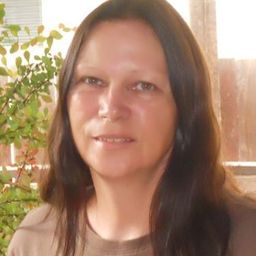11.30 Un-Erasing the Indigenous Paleolithic: Re-Writing the Ancient Pleistocene Past of the Western Hemisphere (the Americas)
Mon statut pour la session
American archaeologists in service of the nation state have long denied an ancient presence of Indigenous peoples in the Western Hemisphere. State institutions and their bureaucracies have controlled the reproduction of Indigenous heritage in education and general discussions to mimic an acceptable national social memory of Indigenous peoples as recent immigrants from the east, from Siberia or Asia. Although a few archaeologists argued for an earlier than 12,000 year before present presence of Indigenous peoples, it was well known that to support an earlier presence of Indigenous peoples in the Western Hemisphere was to enter the archaeological badlands. Scholars discussed this research area as a battlefield strewn with academic causalities. I argue that the long-standing academic denial over the legitimacy of earlier sites in the Western Hemisphere, and archaeologist’s reluctance to consider earlier initial migrations, reflect a colonial practice in North American archaeology which maintains an erasure of an ancient Indigenous presence in the Western Hemisphere. This is a practice that is evident within the documented history of American archaeology over the last century. For many if not all Indigenous peoples there is no separation between the past and the present, all time and all history are crucial to their culture and well-being. Therefore rupturing the connection between the present and the past, contemporary and ancestral people, and the people and the land, as American archaeology in service of the state has done, has been a very violent and destructive historic event. For Indigenous peoples, identities weave threads of primordial memories through space and time and acknowledge connections to ancestors, and sacred homelands. I will argue that a denial of ancient ancestral connections to the land remains a part of what is at the heart of a lingering intergenerational trauma and individual and community illness. I will further argue that American archaeology has an ethical and moral duty to un-erase histories and identities that its academic predecessors erased through violent discursive processes of knowledge production. The existence of Pre 13,200 cal BP sites, and ancestral connections between ancient First Peoples and contemporary Indigenous communities is empowering to these peoples. The existence of hundreds of ancestral sites in the Pleistocene creates a dialogue from which Indigenous peoples can challenge erasures of histories, it foregrounds their Indigenous identities and their links to the land and empowers them in seeking justice. To allow that Indigenous peoples have been present in the Western Hemisphere for a much greater time is to support Indigenous ownership of the past and present, and lands and material heritage. To accept that Indigenous peoples have been in the Western Hemisphere for over 60,000 years and possibly prior to 100,000 ybp is to put them on equal footing with areas of the so-called Old World. I believe that Indians will never be accorded full humanity until they are connected with world history.

Discussion